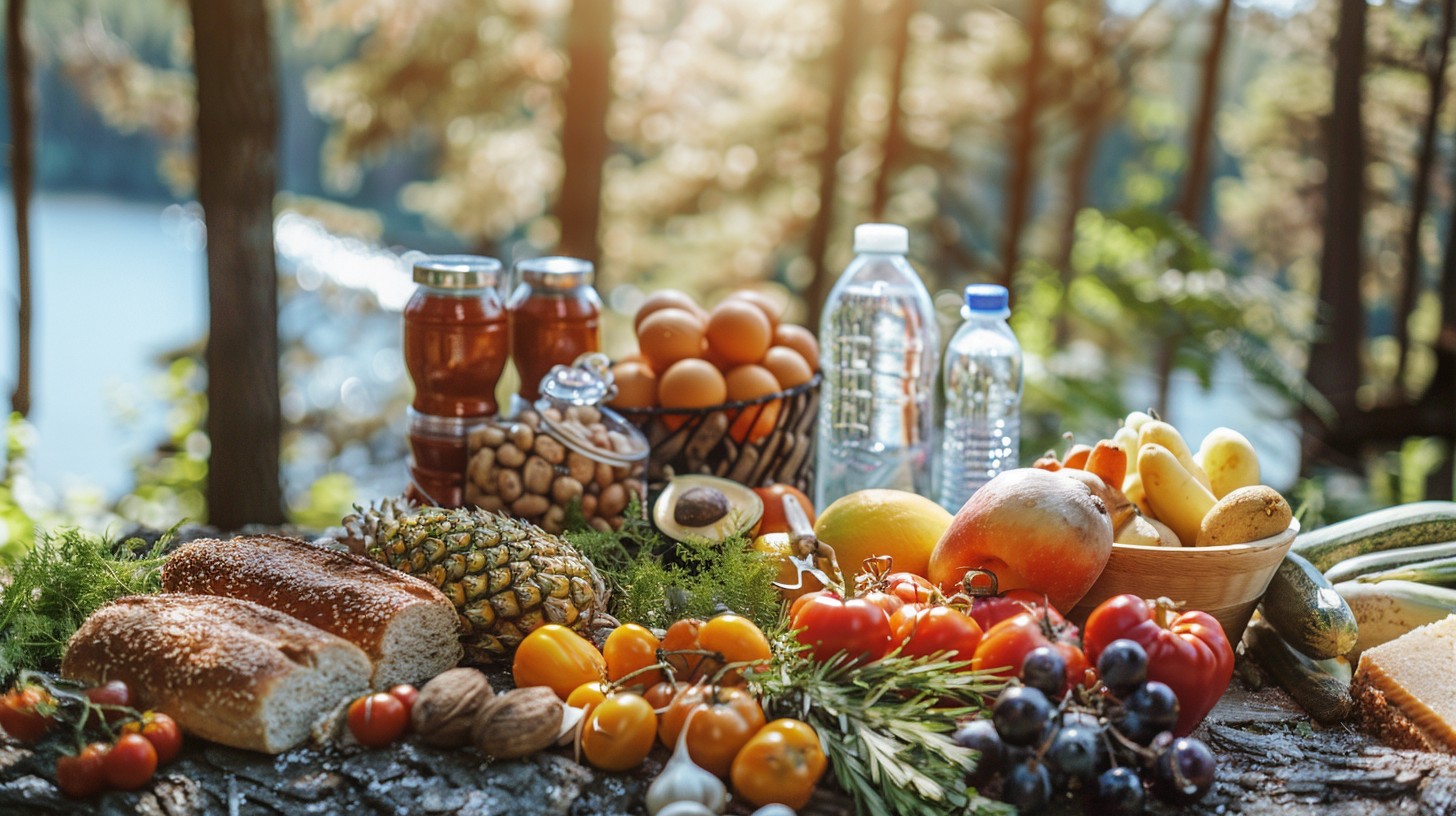8 Food and Beverage. The food and beverage industry is a constantly evolving landscape, driven by changing consumer preferences and emerging trends. Entrepreneurs looking to dive into this competitive yet rewarding field must keep an eye on innovation, sustainability, and health-conscious choices. In 2025, there are several promising food and beverage startup ideas that can capture market attention and lead to a successful business venture. Below, we explore eight innovative concepts for entrepreneurs to consider this year.
1. Plant-Based Meat Alternatives
The demand for plant-based meat alternatives has skyrocketed in recent years, and this trend is set to continue in 2025. With a growing awareness of the environmental impact of traditional meat production and a surge in veganism and vegetarianism, consumers are seeking healthier, more sustainable options. For more information, visit this article.
Entrepreneurs can capitalize on this by developing innovative meat substitutes made from ingredients like pea protein, soy, and jackfruit. Beyond burgers and sausages, there’s an opportunity to explore alternatives for chicken, seafood, and even deli meats. Brands like Beyond Meat and Impossible Foods have paved the way, but the market is far from saturated. A startup focusing on creating high-quality, tasty, and affordable plant-based meat alternatives has the potential to thrive.
2. Functional Beverages

Functional beverages are drinks that offer health benefits beyond basic nutrition. Consumers are no longer satisfied with sugary sodas or empty-calorie beverages; they’re looking for drinks that support their well-being, boost energy, or enhance mental clarity. This presents a golden opportunity for startups.
Popular categories include probiotic drinks for gut health, adaptogen-infused teas for stress relief, and collagen drinks for beauty and skin health. Additionally, CBD-infused beverages have gained traction due to their calming effects. Entrepreneurs can also explore beverages that improve athletic performance, provide hydration, or promote immune support. 8 Food and Beverage.
3. Ghost Kitchens
Ghost kitchens, also known as virtual kitchens or cloud kitchens, have revolutionized the food delivery business. These establishments operate without a traditional storefront, focusing entirely on preparing meals for delivery services like Uber Eats, Grubhub, and DoorDash. 8 Food and Beverage. With the rise of online food ordering, ghost kitchens offer a low-overhead solution for restaurateurs.
Startups can leverage this model to test new cuisines, develop delivery-only brands, and streamline operations without the need for a physical dining space. By focusing on optimizing delivery logistics, creating a strong digital presence, and offering diverse menus, entrepreneurs can carve out a profitable niche in the delivery-driven food market.
4. Upcycled Food Products
Upcycling refers to the process of transforming by-products or waste materials into new products of higher value. In the food industry, this means creating sustainable products from ingredients that would otherwise be discarded. 8 Food and Beverage. For example, companies are using fruit peels, coffee grounds, and spent grains to create new snack foods, beverages, or even flours.
Consumers are becoming more environmentally conscious, and brands that promote sustainability have a competitive edge. Entrepreneurs can launch startups that specialize in upcycled snacks, beverages, or pantry staples, appealing to eco-friendly customers while contributing to a circular economy.
5. Personalized Nutrition Services

With advancements in technology and growing interest in health and wellness, personalized nutrition has become a hot topic. This involves offering customized meal plans or nutritional advice based on an individual’s DNA, blood tests, or lifestyle habits. Startups can develop apps or subscription-based services that provide tailored diet plans and grocery lists to meet specific health goals, such as weight loss, muscle gain, or managing chronic conditions. 8 Food and Beverage.
Entrepreneurs can also partner with nutritionists and dieticians to create subscription meal kits, delivering fresh, customized meals directly to consumers’ doors. Personalized nutrition offers endless possibilities for innovation, particularly in niche markets like keto, vegan, and gluten-free diets.
6. Sustainable Packaging Solutions
Sustainability is no longer an option but a necessity in the food and beverage industry. As consumers become more aware of plastic pollution and environmental degradation, they are demanding eco-friendly packaging for their food and drink products. Startups can address this by offering biodegradable, compostable, or recyclable packaging options to food and beverage companies.
Moreover, developing innovative packaging materials—such as those made from seaweed, mushrooms, or sugarcane—can differentiate a startup in this growing market. Not only does this meet consumer demand for sustainability, but it also positions businesses as responsible and forward-thinking in a rapidly changing world.
7. Food Tech Solutions
Technology continues to transform the food industry, from how food is produced to how it’s consumed. Food tech startups can introduce innovative solutions to improve food safety, reduce waste, or enhance the customer experience. Examples include automated kitchen equipment, AI-powered food preparation tools, and robotic delivery systems. 8 Food and Beverage.
Startups can also focus on tech-driven solutions for precision farming, which uses data and analytics to optimize crop production, or vertical farming, which allows for urban agriculture in small spaces. Additionally, blockchain technology is being applied to ensure transparency in the supply chain, giving consumers more information about where their food comes from.
Table of Contents
8. Zero-Waste Grocery Stores
Zero-waste grocery stores cater to the growing number of consumers who want to reduce their environmental footprint. These stores eliminate single-use packaging by allowing customers to bring their own containers to buy bulk food, cleaning supplies, and personal care products. This concept aligns with the zero-waste lifestyle and promotes minimalism, two trends gaining momentum among eco-conscious consumers.
Entrepreneurs can either open brick-and-mortar stores or explore the online zero-waste store model, where items are shipped in reusable or compostable packaging. Zero-waste stores also provide an excellent platform for local and organic products, creating a niche that emphasizes sustainability and supporting small-scale producers.
8 Food and Beverage
The food and beverage industry is ripe with opportunities for entrepreneurs in 2025. From plant-based innovations to sustainable business practices, there are numerous ways to tap into consumer demand for healthier, more responsible choices. Each of the startup ideas mentioned above presents a unique chance to innovate, disrupt, and succeed in the marketplace.


